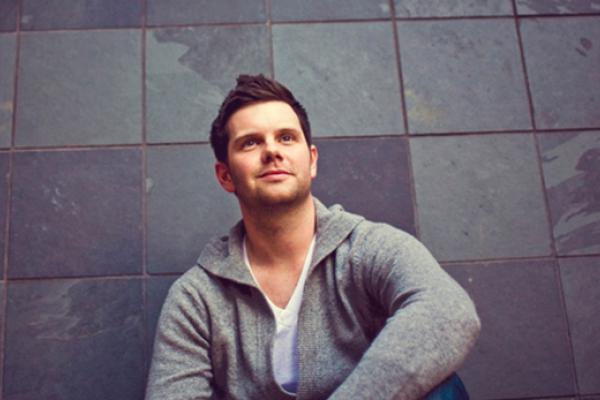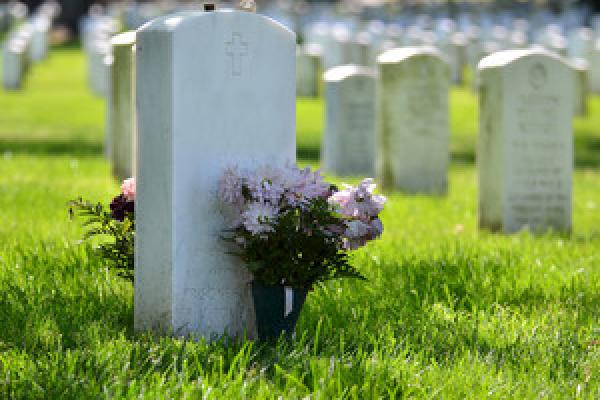The Fast for Families bus continues its journey across the country getting closer to its final destination: Washington, D.C., on April 9. Fast for Families’ leader, Eliseo Medina was arrested in Miami on March 21 and released later that night. Medina was arrested at Congressman Mario Diaz-Balart’s Doral office while delivering a letter on immigration reform with constituents and immigrant rights advocates.
Continuing to advocate for fair and humane immigration reform, fasters pressed on into week five and made stops in Indiana, Michigan, and Ohio. Fasters met with the staff members of Republican Rep. Mike Rogers in Lansing, Mich., to press for support.
“America has a proud heritage as a nation of immigrants, but our current immigration system is clearly broken ...” Rogers said in a statement. “I am ready to start small and work together to create meaningful bipartisan legislation, piece by piece.”
Religion has, for centuries, been fairly obsessed with the afterlife. For some, what awaits us after our physical death is fairly central to their faith. But thanks to the Internet, many of us end up having a sort of life after death, whether we intended to or not.
In a recent article published in the New Yorker magazine, Pia Farrenkopf experienced the sort of digital life after death that some might find appealing, while others would consider it rather horrifying. Pia traveled frequently for work, so it was not unusual for her neighbors not to see her for long stretches at a time. They would mow her lawn when the grass got long and kept an eye on the place during her long stints out of town.
As such, she lacked many close ties near home, and like many of us, all of her monthly finances were automated and tied directly to her bank account. So although she died in early 2009 while sitting in her car in the garage, it was not until very recently that anyone actually discovered she was dead.
It took that long for her checking account reserves to run out, which led to utility shut offs and a visit from the bank to issue an eviction notice due to missed payments. So although her body had set partially mummified in the garage for nearly five years, as far as the outside world was concerned, she was still alive.
In his book, The Singularity is Near, Ray Kurzweil speaks of a not-so-far-off point in our future when the ability of computers to process information and replicate human thought and behavior will get to the point that we will question what it means to be conscious, and to be a person.
It seems like the stuff of science fiction, to consider the possibility of people uploading the entirety of their life experience, or even some iteration of what we understand to be their consciousness, to a network of computers. But the fact is that we already are wrestling with these sorts of ethical implications, even today.
“When we were children, we used to think that when we were grown-up we would no longer be vulnerable. But to grow up is to accept vulnerability … To be alive is to be vulnerable.”
These are the words of Madeleine L’Engle, and this week I’ve been reminded of the wisdom they contain.
This weekend, Christianity Today posted an excerpt from my new book, Jesus is Better Than You Imagined, in which I share a story about childhood sexual abuse and my adult struggle to understand my sexuality. Many have asked why I would do such a thing.
This wasn’t a career move or a brazen attempt to sell more books. Being open about these experiences as an evangelical writer leaves me, like so many scarecrows, exposed. I do not plan to become a spokesman for any of the issues addressed in this article. The events shared are a part of my story, but they are not the whole of my calling. Today, I return to my job as a columnist committed to exploring the interface between faith and culture and helping foster difficult conversations that others may be unwilling to have.
I grew up with music in my life. At first, it was a combination of my dad’s Willie Nelson and Ray Charles with my mom’s old southern Gospel hymns. I’d sit under the piano, feeling the vibrations as she played “Blessed Assurance,” and then lie on the floor in front of the speakers as Ike and Tina belted out “Proud Mary.”
And then I discovered my own music, in the form of rock. Eventually, I sang lead in several hard rock bands around Dallas hitting all the local hot spots and singing until I was hoarse and exhausted. It was during my decade away from church that I did most of this, but I didn’t realize until recently that, despite the pretense of countercultural rebellion the music offered, it actually gave me some of the same things I experienced as part of organized religion.
Of course, only the most uneducated would think of rock music as some monolithic think that was barely held together by the pursuit of sex, drugs, and fame. There were rules. There were codes. And my lord, there were categories.
Any time you asked a band what style they were, inevitably they’d sigh and equivocate, finally listing off a handful of bands they most certainly were not like. No one wanted to be categorized, and yet we were more than ready to label all others and fit them in to their neat little musical denominations.
Women of faith have moved hearts, minds, and mountains. They have changed the world by their faithful witness – and changed lives. Through our Women and Girls campaign, Sojourners is working to gather and lift up the voices and stories of these women to inspire a new generation of women to lead on faith and justice.
Sojourners’ Women and Girls campaign is our newest initiative in our ever-expanding work for justice in our world. Through creative advocacy, education, outreach, bridge-building, and a variety of other ways, we are affirming and empowering the God-given leadership abilities of women and girls in their congregations, communities, and the world.
To celebrate Women’s History Month, we asked some of our supporters to make a gift in honor of a woman of faith in their life. Below are the stories of a few of these women of faith.
Sunday, April 6 is National Epitaph Day.
Reading through a list of bizarre and unique holidays is fascinating for any month. Looking at this list during Lent can provide new perspective. We know “April Fools Day” unfolds as March gives way to April. But the first week of April provides ample opportunity for celebrating events such as National Peanut Butter and Jelly Day, Don’t Go to Work Unless its Fun Day, Go For Broke Day, National Sorry Charlie Day, No Housework Day, and Draw a Picture of a Bird Day. Which of these holidays do you want to celebrate?
National Epitaph Day stands out amid the myriad of options in its simultaneous opportunity for solemn reflection and humor that defies the grave. Epitaphs provide an opportunity to have the last word, to exert one last bit of control, to imagine the poetics of our lives summed up in just a few words of prose. One calendar of observances provides this invitation: “[National Epitaph Day] day is a chance for control freaks everywhere to plan out what their gravestone is going to say.”



![Dorothy Day, By Unknown photographer [Public domain], via Wikimedia Commons By Unknown photographer [Public domain], via Wikimedia Commons](https://sojo.net/files/styles/large_rectangle_crop/public/blog/Dorothy_Day_1916.jpg)
